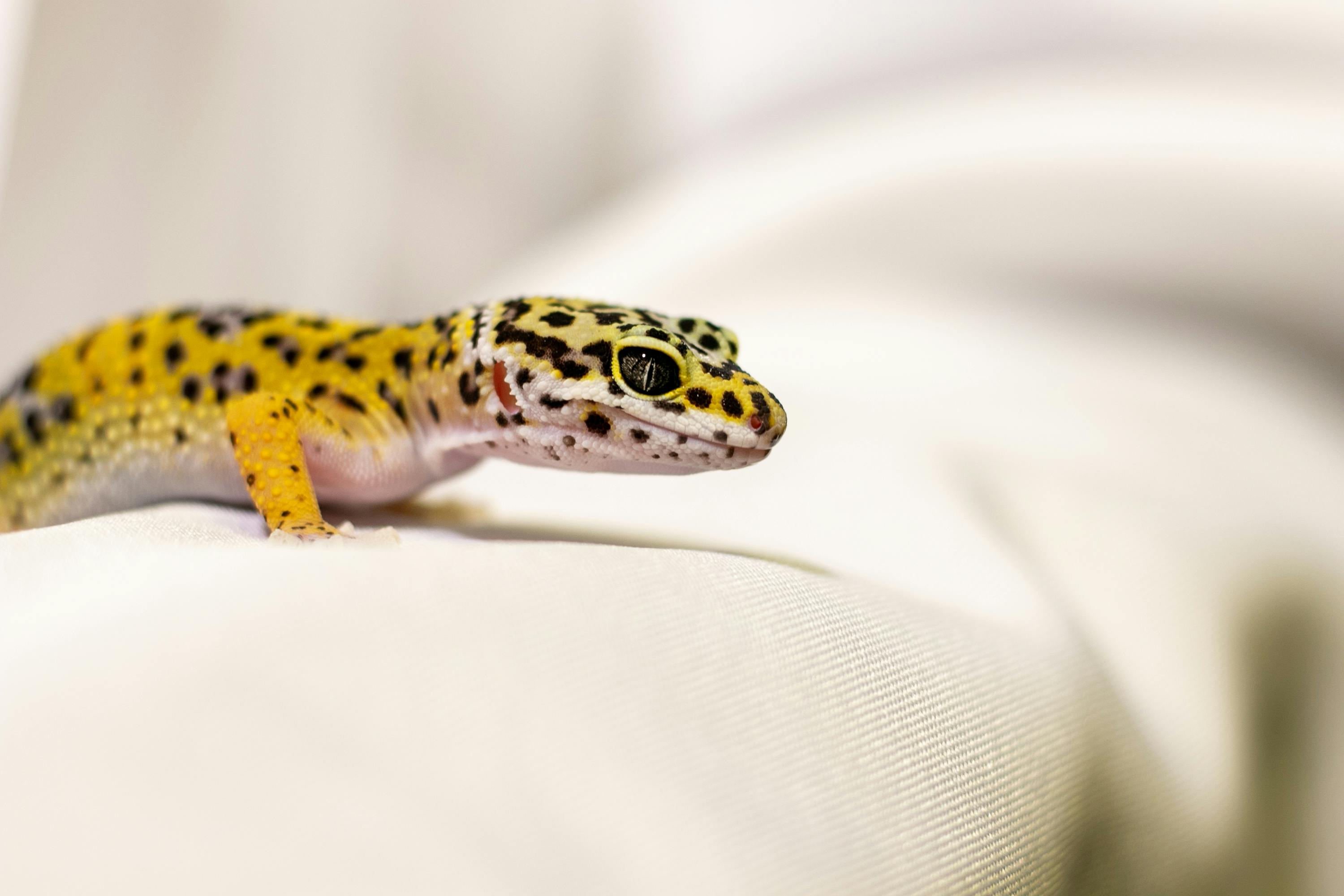Breed Introduction
Leopard Geckos are ground-dwelling lizards adapted to life in rocky, dry grasslands and desert regions. Known scientifically as Eublepharis macularius, they are distinguished by their robust build and vibrant color patterns. These lizards are capable of regenerating lost tails, adding an intriguing aspect to their biology.
- Class: Reptilia
- Domain: Eukaryota
- Family: Eublepharidae
- Genus: Eublepharis
- Kingdom: Animalia
- Length: Males typically measure 20-28 cm and females 18-20 cm.
- Weight: Males weigh about 60-80 grams and females 50-70 grams.
- Behavior: They are known for their docile nature, rarely biting even when threatened, making them ideal pets for beginners.
Leopard Geckos are insectivores, primarily consuming live insects such as crickets, ‘calci worms’, and waxworms. The size of the feed should be smaller than the gecko’s head to prevent choking. Owners should also provide fresh vegetables and clean water to keep the insects hydrated.
- Natural Habitat: Originating from arid, mountainous deserts, they prefer rocky substrates over sandy ones to avoid ingestion and potential health issues.
- Enclosure: A 10 to 20 gallon tank is typically sufficient for these geckos, ideally equipped with a substrate of Sphagnum Moss or similar to mimic their natural environment.
- Lighting: Requires 12 hours of visible light per day using a low-wattage UVA/UVB light source.
- Temperature: Should range between 75-80°F on the cool side and 80-85°F on the warm side, with a basking spot of 90-95°F.
- Additional Needs: Include climbing décor, under-tank heaters, and regular tank cleaning to ensure a healthy living environment.
- Shedding: Frequent shedding is common, especially in young geckos. Adequate humidity and hydration are vital during these periods to aid in shedding.
- Medical Concerns: While generally robust, they can suffer from nutritional deficiencies if not provided with a varied diet.
Owning a Leopard Gecko offers a rewarding experience due to their unique characteristics and manageable care requirements. Here are some quick tips:
- Varied Diet: Ensures they receive all necessary nutrients.
- Proper Enclosure: Adequate space and the correct type of substrate help prevent stress and health issues.
- Regular Interaction: Helps tame your gecko and reinforces its docile nature.
- Monitoring Temperatures: Crucial for their health and well-being, especially around shedding periods.

